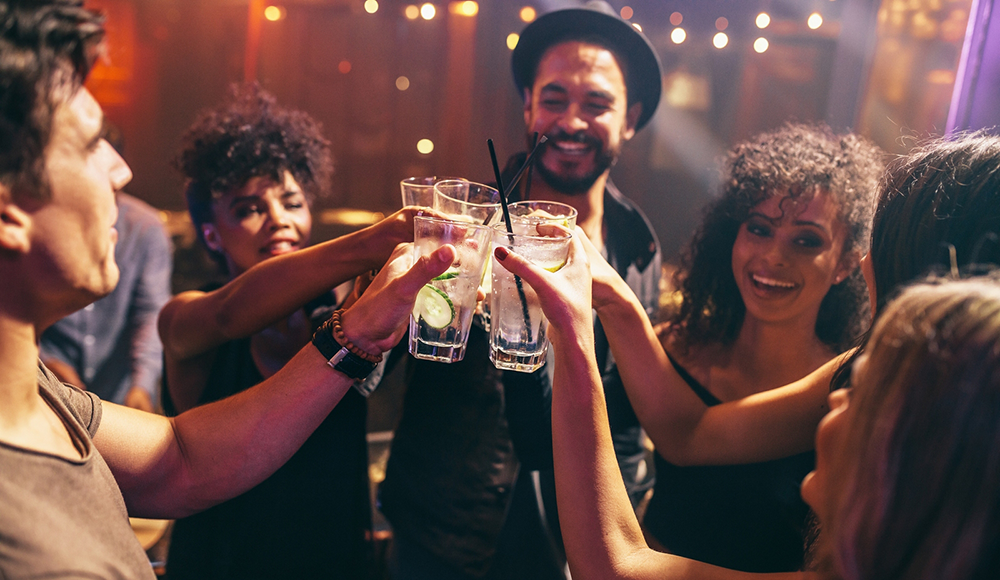A Recovering Addict’s Guide to a Toxic Work Environment

“The keg is becoming the new water cooler,” declares a 2013 article in The Wall Street Journal. The article goes on to describe a growing trend of alcohol in the workplace as more employers offer free booze to attract and retain employees.
While this may be a positive incentive for some workers, it is nothing short of an environmental hazard for many recovering addicts, who make up a sizable portion of the workforce. (One third of adults in this country will reportedly have an alcohol use disorder at some point in their life.) The question these employees face is how to successfully navigate a work environment that could be toxic to their recovery. I offer some advice below, starting with potential triggers to avoid.
How a Workplace Can Be Toxic to Your Recovery: Two Big Relapse Triggers
Research has found that people are more likely to drink when alcohol is readily available and others are drinking. These factors can also trigger relapses for people with addictions to drugs or alcohol, for whom limiting exposure to environmental triggers is key to successful recovery. When these two drinking cues occur together, the result is a potentially toxic environment.
In this context, “I’ll just have one drink” sums up the “addictive mindset” that often precedes relapse. Take, for example, someone we’ll call “Bob.” Bob is successfully in long-term recovery, but he once struggled with multiple addictions.
“I was an alcoholic first, and I’d have a drink and then a few drinks — and then I’d say, ‘I could really use some crack,'” Bob says. The scenario he describes is not uncommon, and it illustrates the dangers of thinking you can have “just one drink.” Put this way, it’s easy to see how “just one drink” at an office happy hour can derail anyone’s hard-earned recovery.
How to Navigate a Booze-Friendly Workplace When You’re Trying to Stay Sober
When you’re trying to stay sober, how do you successfully navigate a work environment that is downright unfriendly to your recovery? Use these survival tips for the following scenarios:
Office Happy Hours and Other Work-Related Gatherings Involving Alcohol
The cardinal rule in early recovery is to avoid social situations where alcohol is the focal point. However, skipping an office happy hour or other work-related gathering involving alcohol is not always an option. Here are some ideas about how to attend these events without sacrificing your sobriety:
- Have your favorite non-alcoholic drink in hand. Seltzer water, cranberry juice, or even a mixed “mocktail” are all good choices.
- Stave off invitations to drink by keeping your hands full when you’re mingling. For example, if there’s a food table, grab a plate and nurse it slowly, with your non-alcoholic drink in your other hand.
- Limit your time at the event to one hour, and stay as socially engaged as possible during that hour. If there’s a crowd, make your rounds. Be as mindfully present as you can be in these conversations. If alcohol introduces itself as a tempting distraction, gently redirect your focus to the person in front of you, making them your priority. Let people know you have a deadline or other commitment and will need to duck out early.
- Hold yourself accountable to a 12-step sponsor or close friend. Tell them about your plans ahead of time so that if you find yourself on the brink of caving to “just one drink,” you can text them an SOS message.
Ways to Say You Don’t Drink
It’s helpful to have a prepared response for why you don’t drink in case you are asked. There are ways to say you don’t drink without referencing your recovery. Here are several examples:
- “I don’t drink for health reasons.”
- “I quit drinking because I feel better when I don’t.”
- “I’ve got an allergy to alcohol.”
- “I’m trying to lose weight/get into better shape.”
Should You Disclose Your Recovery?
Many people are totally comfortable being up front about the fact that they don’t drink because they’re in recovery. There is no hard-and-fast rule that says you should or shouldn’t share this information with coworkers. Choosing what to divulge — and when — is an individual judgment call and will depend on your personal circumstances.
I recommend erring on the side of caution, however. If you have any doubts about sharing your recovery with colleagues, it is appropriate to listen to your gut and avoid the self-disclosure. Unless you’re in a company where other employees are openly in recovery, or you have an excellent performance record and have been with your employer many years, it is wise to keep personal health information confidential at work.
Finally, if you’re feeling stuck or anxious about how to navigate these sorts of work situations, remember that most of the time people won’t care what you’re drinking. They probably won’t even notice what’s in your hand, regardless of what you think. (Try to avoid mind-reading, which can amplify social anxiety.) If someone does inquire about why you’re not drinking, they may be the one who has the problem with alcohol.
Anna Ciulla is the vice president of clinical and medical services at Beach House Center for Recovery.

